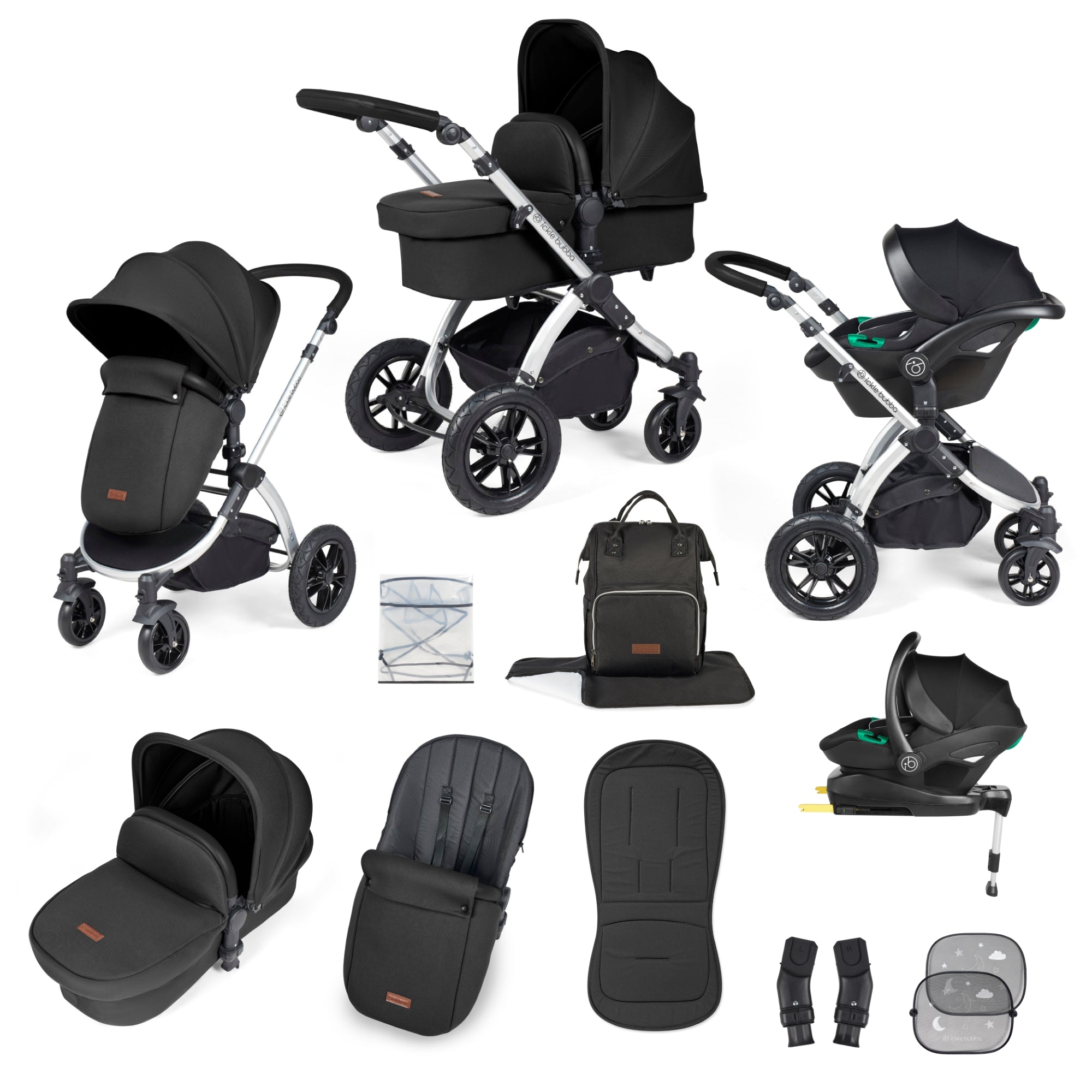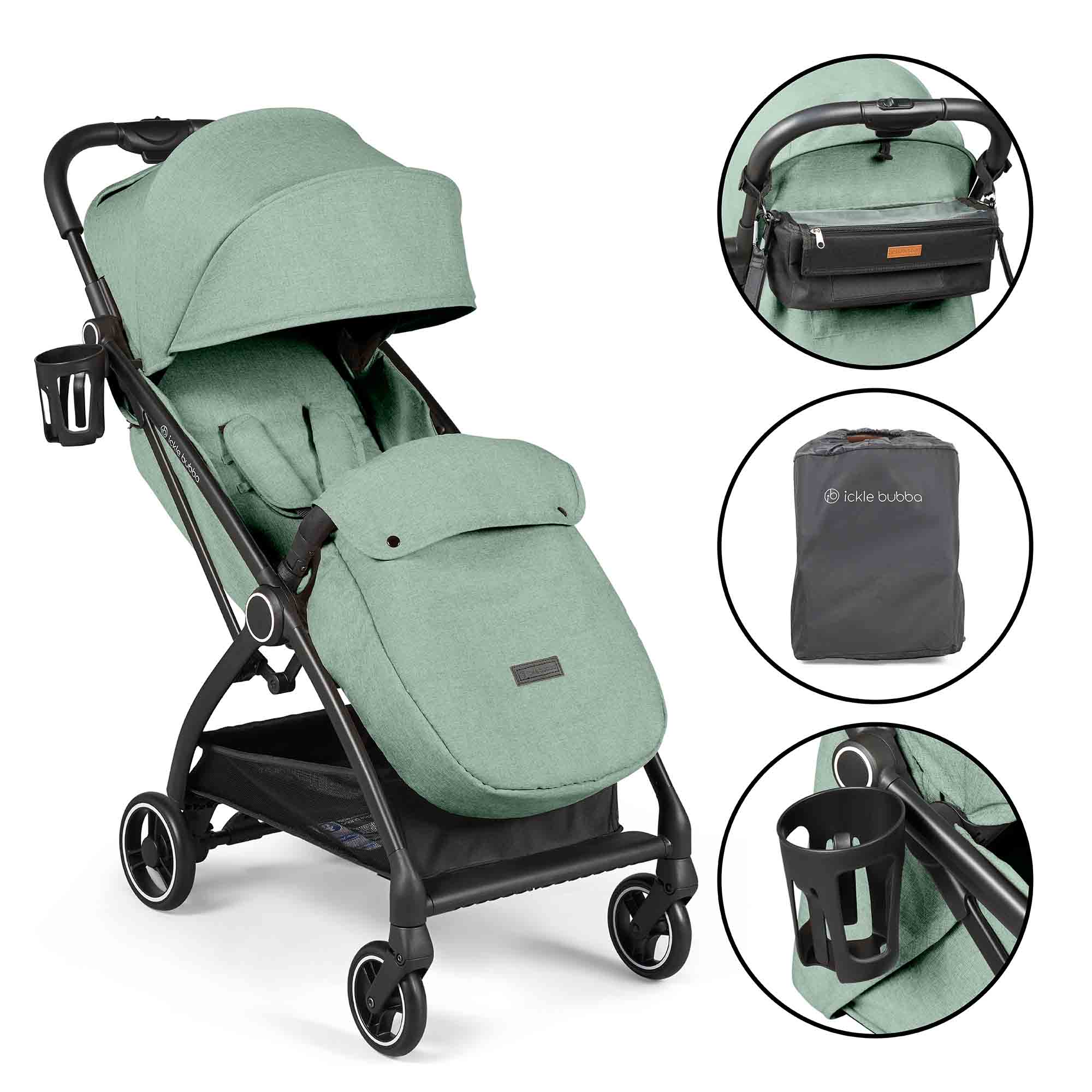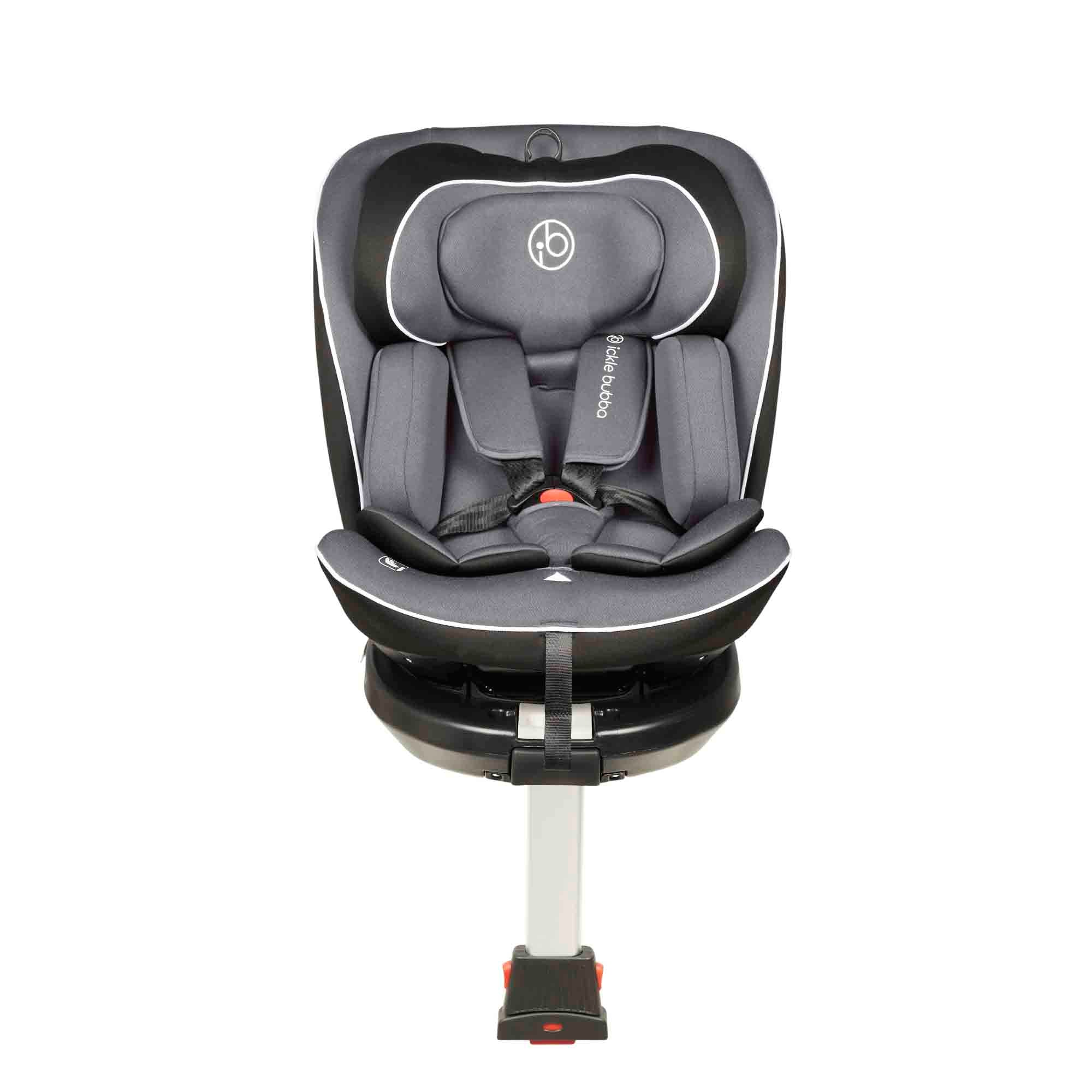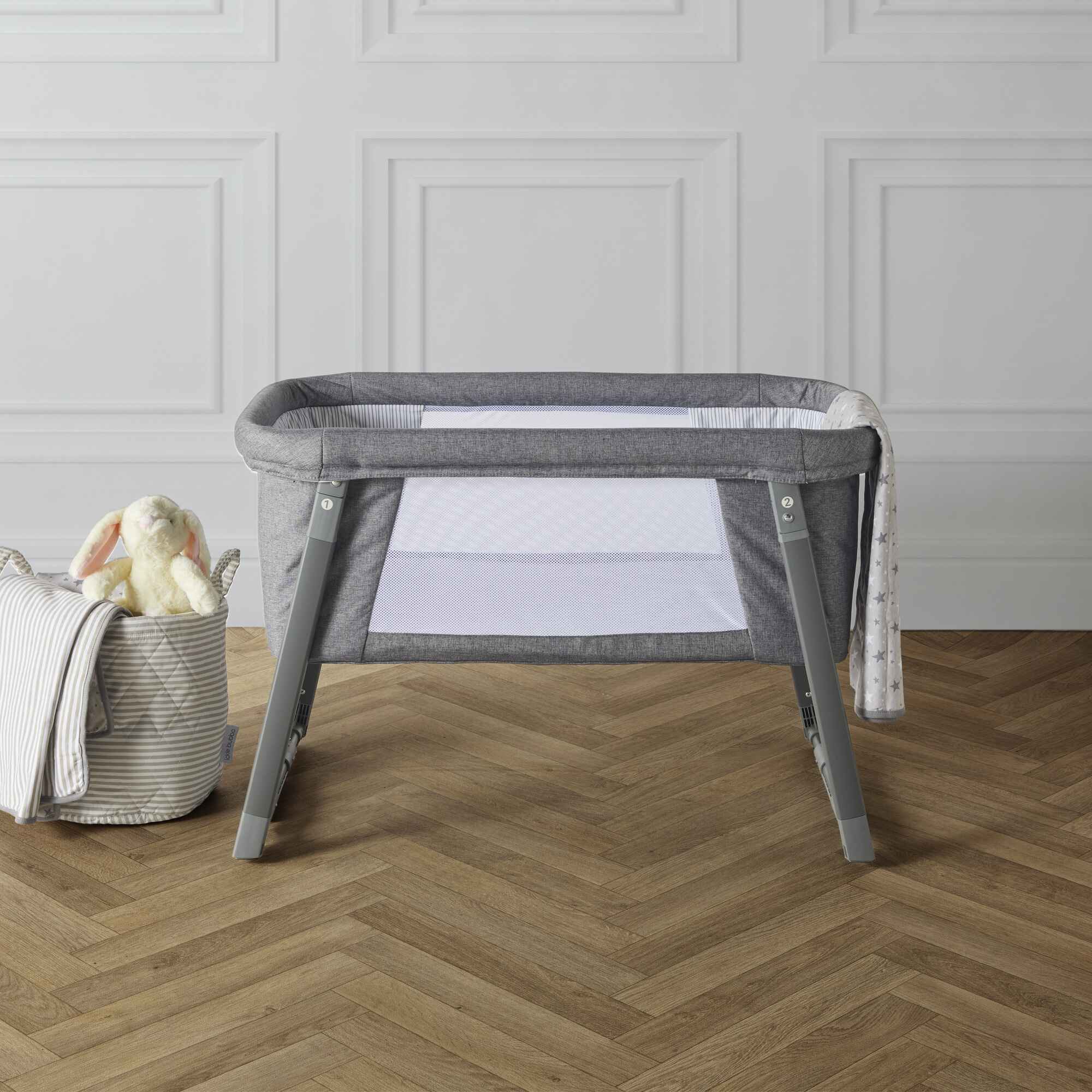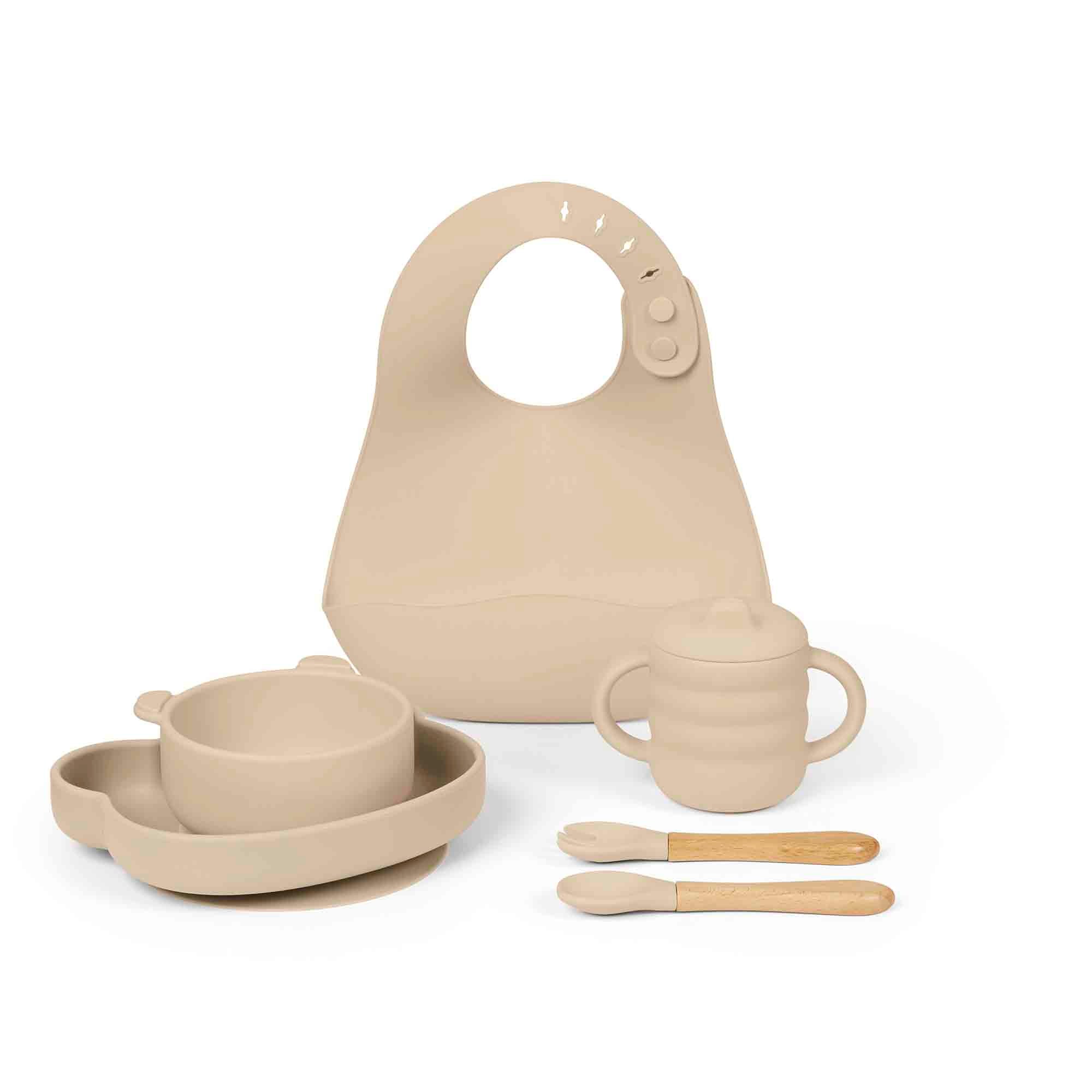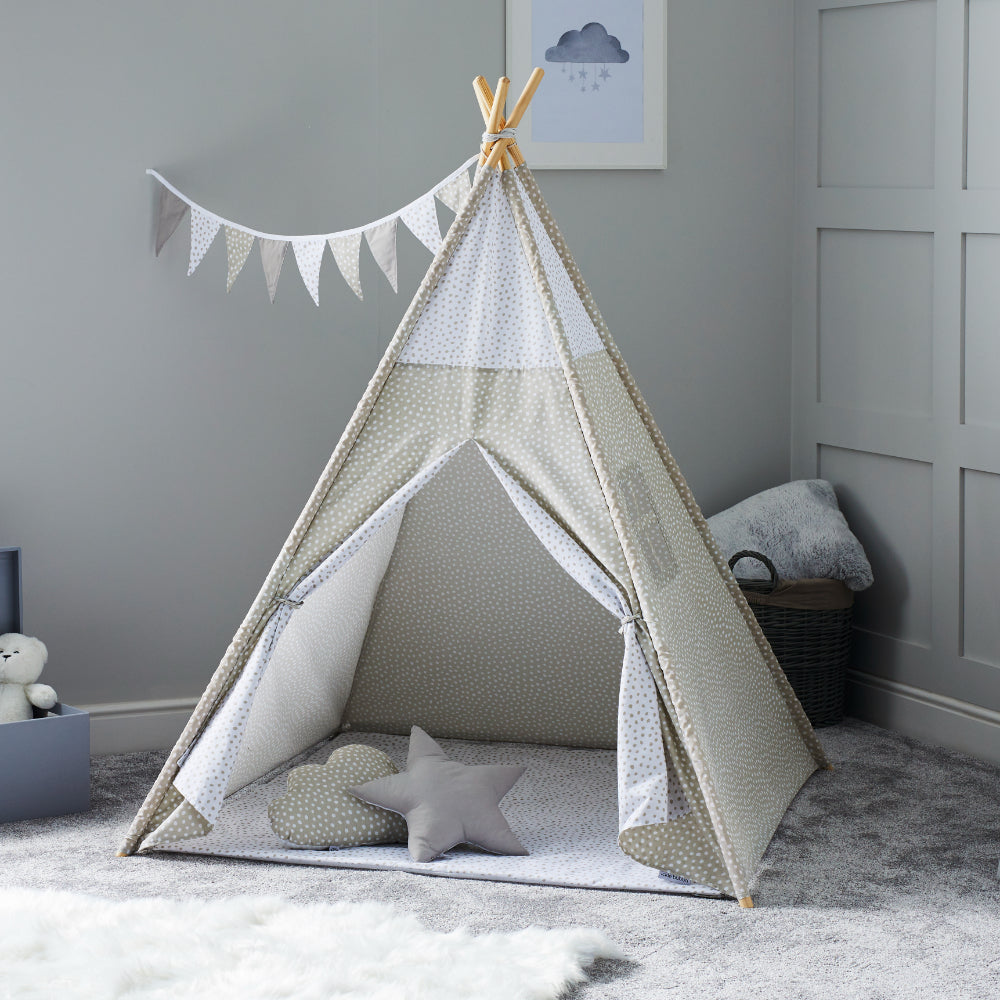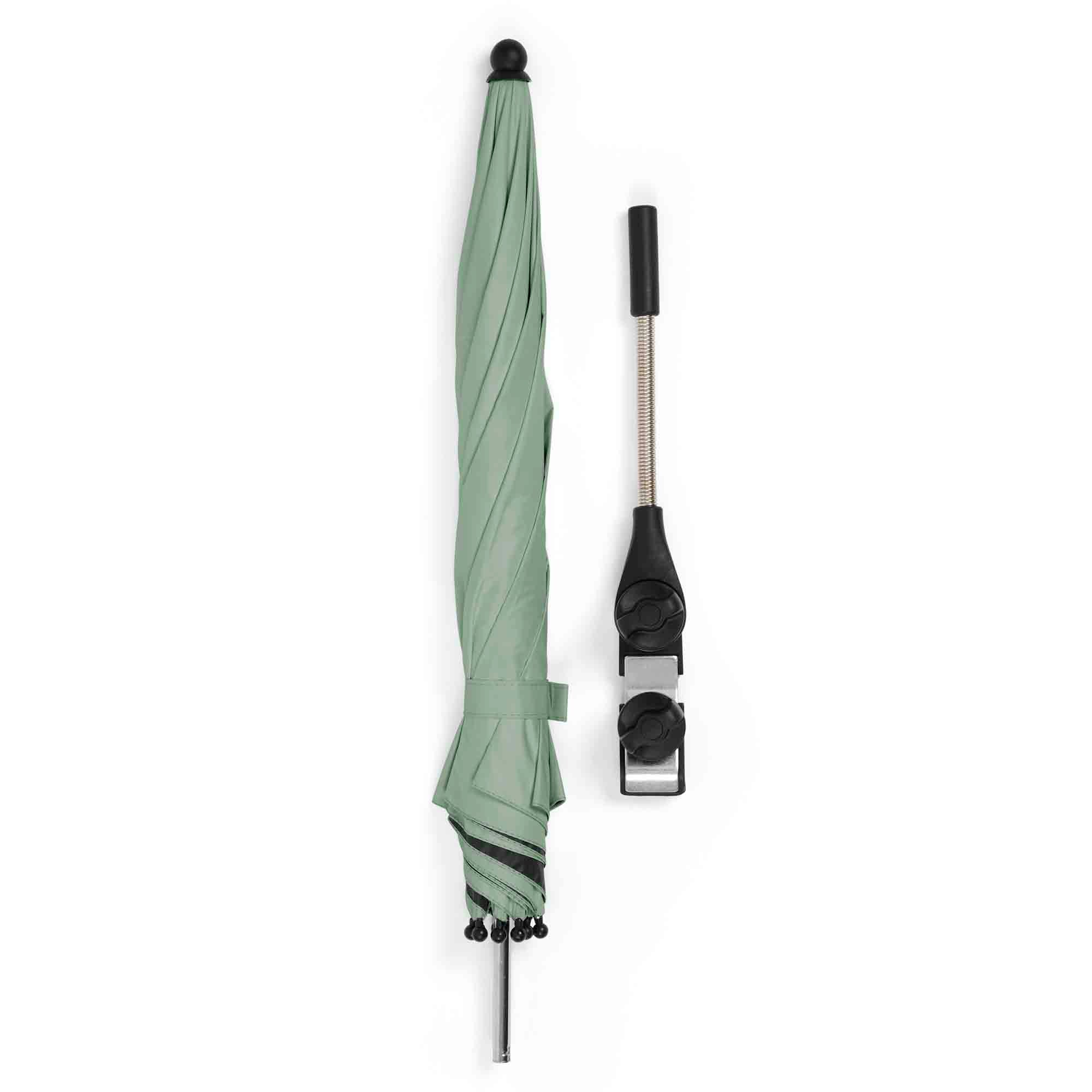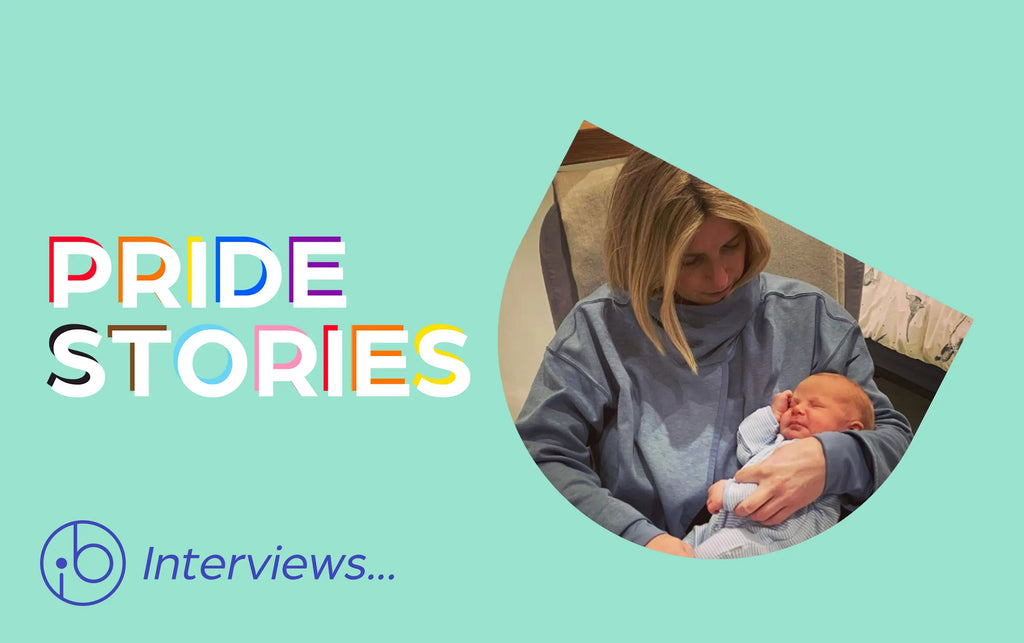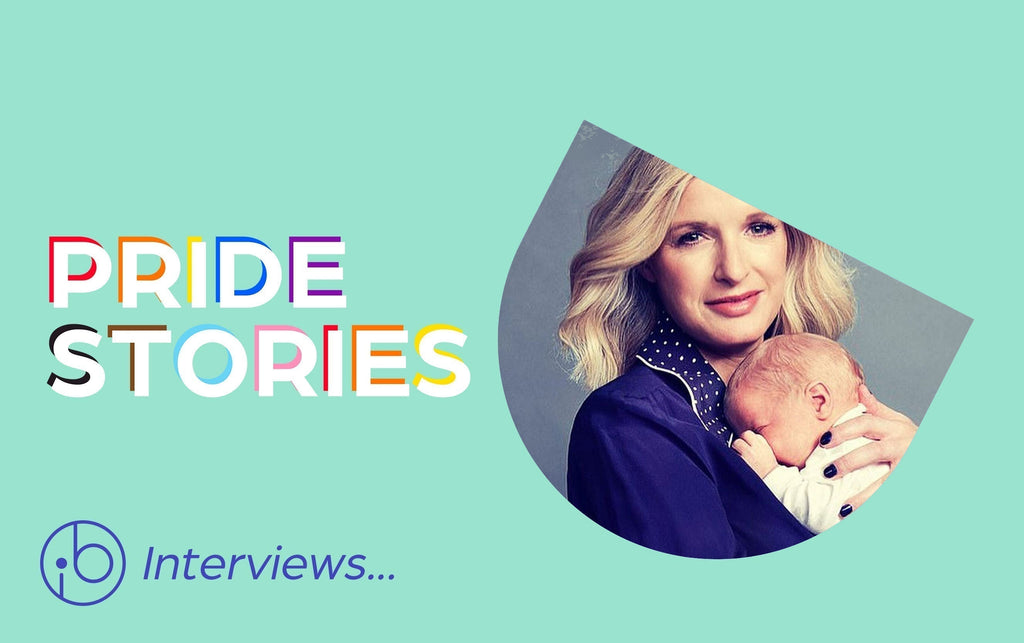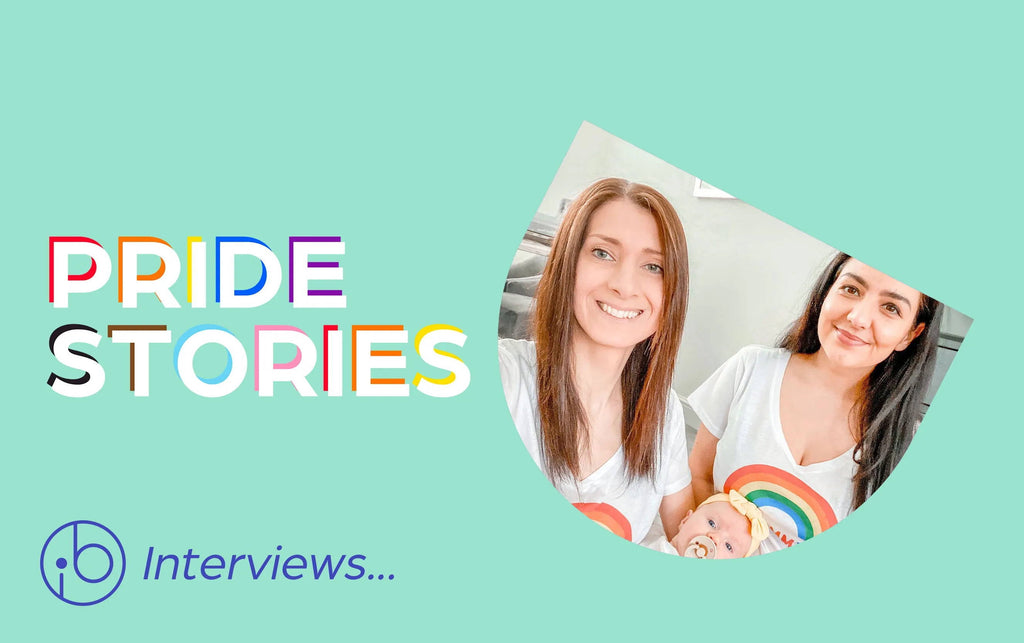Same Sex Parenting
Interview with @taleoftwomummys
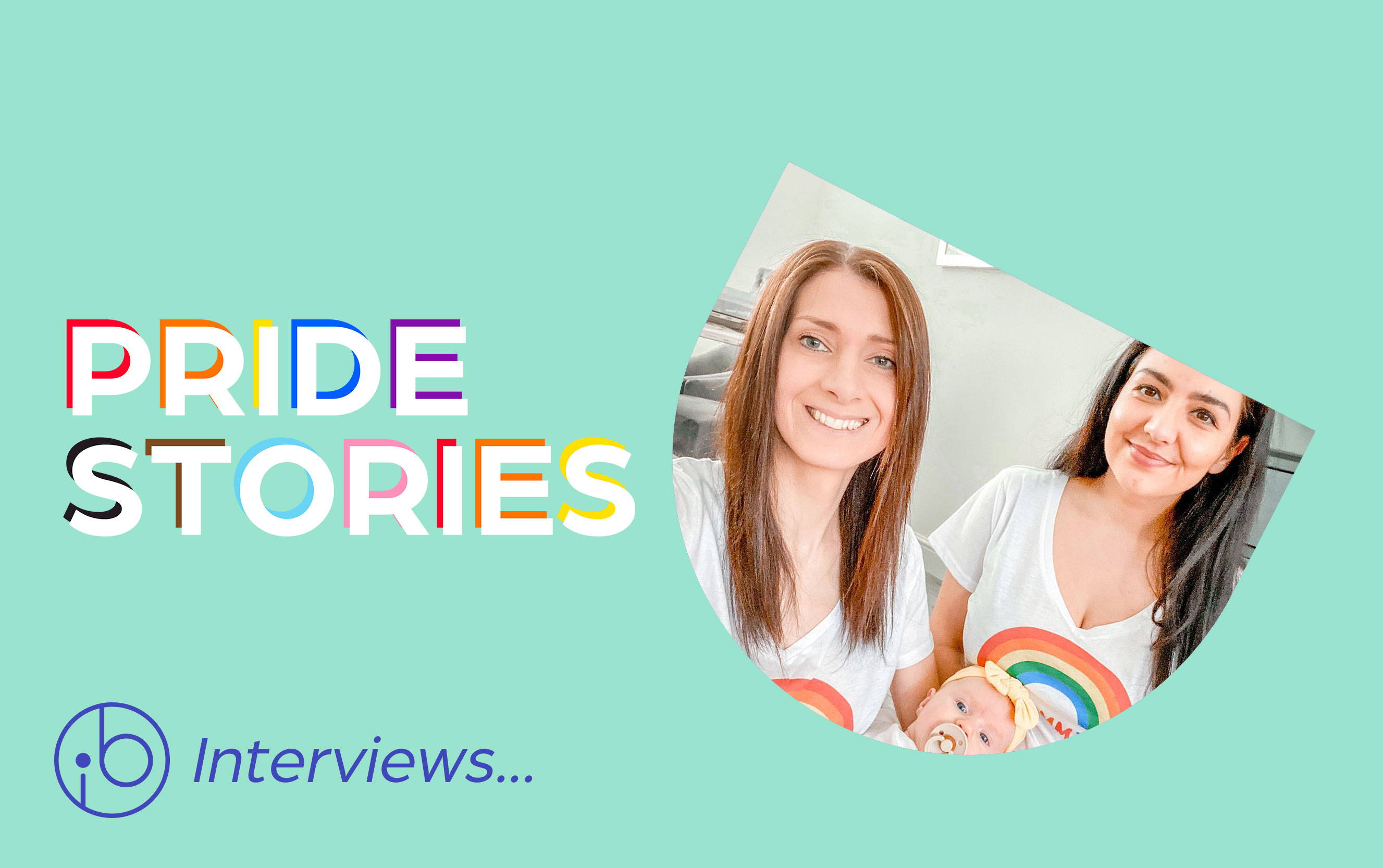
As it's Pride Month, we wanted to share the stories of families from the LGBTQIA community - they can all be found in the Pride section of our blog. This time, we thought we'd speak to two mums who are bringing up their own family.
Rachael and Ashleigh are two mamas raising their beautiful daughter, Avery. They share their journey through motherhood on their Instagram account @taleoftwomummys and so we wanted to catch up with them to find out a bit more about life in the Jackson household.
Congratulations on becoming parents to Avery. Now she’s five months, how are you finding motherhood?
Rachael: We absolutely love it. We’ve wanted to be mamas for so long. It’s one of the hardest things we have ever done but also the most rewarding. Nothing can beat that feeling you get when your baby looks up at you and smiles. It definitely makes all of the hard parts worthwhile.
Ashleigh: We can’t believe how quickly she is growing! Everybody always says it but you don’t understand until you are a parent just how fast the time passes. It seems like two minutes ago we brought our teeny newborn back from the hospital and next month it will be time for weaning!
We know you’ve been on quite a journey to get to where you are now. Conceiving Avery through IVF and a sperm donor; is there anything you wish you’d have known when you first started planning your family?
Rachel: Cost is a big one. We didn’t realise until we started looking into it properly just how expensive our fertility journey was going to be. In the UK same sex couples aren’t entitled to any help on the NHS until they ‘prove’ they have a problem conceiving. They have to self-fund so many rounds of treatment before qualifying for any type of funding. This varies from area to area. In our area this was either 6 rounds of insemination (at £1,200 a round) or 3 rounds of IVF (approx. £5,000 each). This doesn’t include the initial tests that are required which are around £500.
This was quite a big expense for us and something we weren’t expecting. We had to pay at the time of treatment as well as our clinic didn’t offer payment plans. To be completely transparent we spent around £8,000 conceiving Avery. She was worth every single penny and we would have paid that a thousand times over. However, I don’t think there is a lot of awareness out there about the financial side of things. When we have spoken to friends and family about the subject a lot of them are shocked.
(@whatwegandidnext are campaigning for fertility equality in the UK. It’s something I’ve been following for a while)
Ashleigh: We also have to pay an annual fee to store our embryos now as well. We had 3 three left over and we could either donate, destroy or keep them in case we want to use them in future. It’s £400 a year for our clinic to store them so we’ve just paid our first payment for that recently.
Another thing that we wished that we’d known was how long the process would take. It felt like we were waiting around a lot of the time. From the initial referral to my GP to waiting for an appointment at the clinic. We then went onto a waiting list for a sperm donor. The waiting list was around a year when we were placed on it.

I feel like we’re hearing more about alternative ways to conceive all of the time but the cost of this is perhaps a little more taboo. Obviously we’re all experiencing the impacts of the cost of living crisis at the moment. How can families in a similar situation to you understand the costs more and maybe factor this into their finances?
Rachael: I would say if you are in a same sex relationship and there’s a chance you are wanting to have a baby, even if it’s not in the near future, start putting money aside just in case. I would advise speaking to some clinics in your area to find out what they charge for treatment and what their requirements are when it comes to being eligible for funding. That way you can work out the best and worst case scenario and start budgeting.
Ashleigh: Obviously have a conversation with your partner about where your priorities lie. For us, being parents was high on our list and there are things that we have had to go without to be able to afford the cost of treatment.
For example, we haven’t gone on as many holidays as we would like to. We’ve also been engaged for a few years and haven’t made any wedding plans because we knew our focus was being Mums. We know we want another baby as well so god knows when we are meant to fit in a wedding!
On a more personal level, it must be hard deciding who is going to carry baby. How did you make the decision?
Ashleigh: We had the conversation pretty early into our relationship. We both knew that we wanted to carry but I am four years older so it just made sense that I would do it first. We definitely want two babies so we decided that Rachael would carry the next baby (if all goes to plan) so we both get to experience being pregnant.
Rachael: Yeah, we know there’s some same sex relationships where one has no interest in being pregnant or carrying a baby which obviously would be more straight forward. I’ve always known that I wanted to have that experience so hopefully I will be lucky enough to be able to do it too.
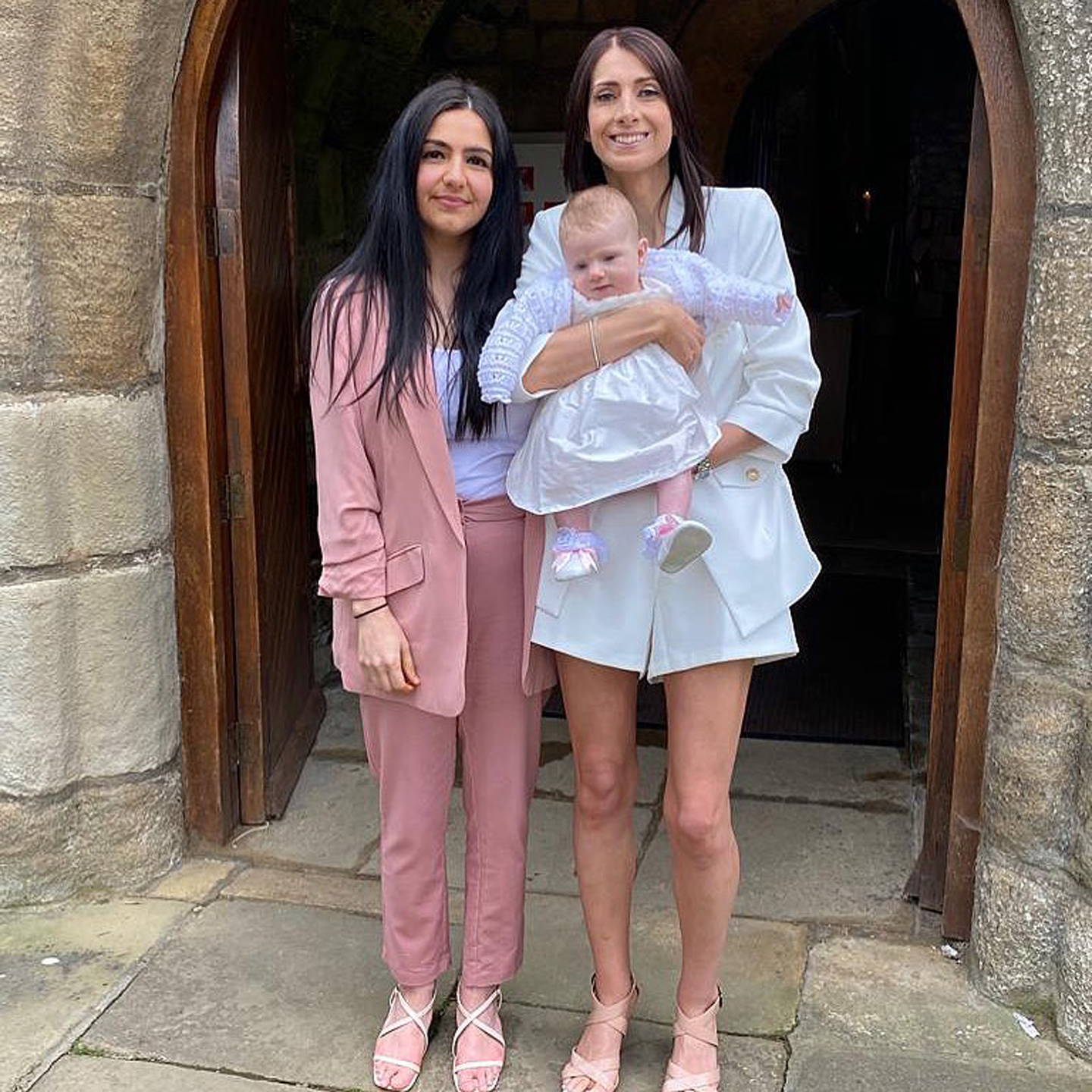
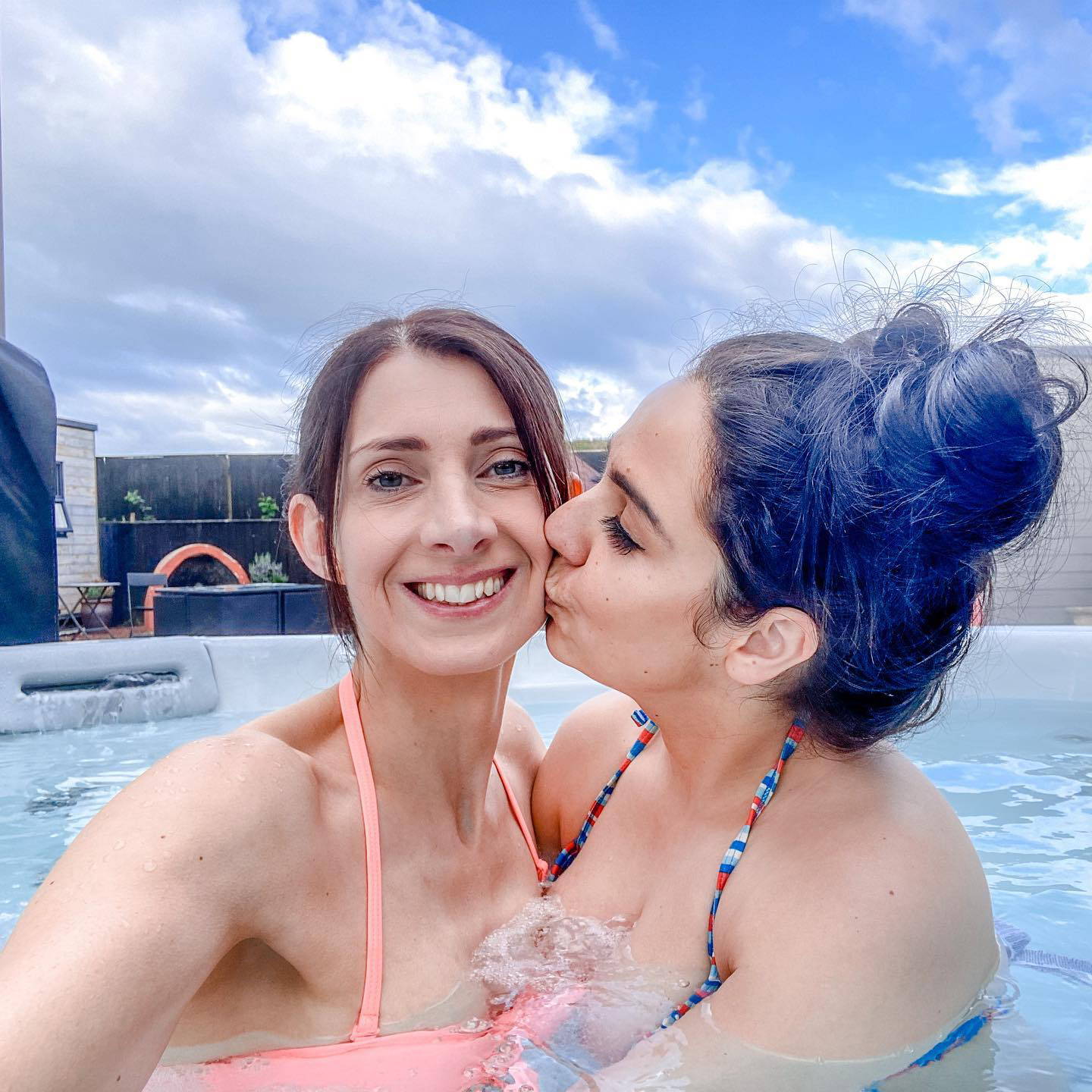
Are there any specific challenges that you’ve come up against being a same sex couple when it comes to parenting? (maternity leave/anything else that surprised you?)
Rachael: I would say probably just some of the ignorance that we’ve faced. A lot of the time I don’t think people mean to offend but they just don’t think before they speak. For example, we’ve been asked the question, “Who is the real mum?” They probably mean who is the birth mum however it doesn’t matter to us so it shouldn’t to anyone else. We are both her mums, regardless of who gave birth to her.
Also, when people ask questions about Avery’s ‘dad’. Avery doesn’t have a dad, she has a donor. We are so grateful that his donation made it possible for us to conceive but the word ‘dad’ implies a relationship.
Ashleigh: Whenever we would go to the hospital for scans Rachael would always get referred to as my friend which was annoying.
Maternity leave has worked out pretty well for us. Rachael took a month off when Avery was born. We decided to do shared parental leave. I’m taking nine months and then Rachael is taking the last three. She’s also working from home so is around most of the time.
If you were to start your conception journey again, is there anything you would’ve done differently?
Ashleigh: We would have researched the topic sooner and budgeted a lot better. We also would’ve probably begun our journey a lot sooner.
Rachael: I really liked the idea of reciprocal IVF which is where the person who carries uses the other’s egg. I think it’s a great way for both people to be involved. I think when we looked into it the cost was more again but if we had been able to plan our finances better, it may have been something we could have considered.
Are there any specific groups/social parenting communities that have become your go-to hubs as a same sex couple? Are there any you’d like to recommend to our followers?
Rachael: Not specifically but I have connected with a lot of Mums on Instagram with babies that are a similar age to Avery, and this includes other two mummy families. It’s nice to see them share their family lives and be able to relate.
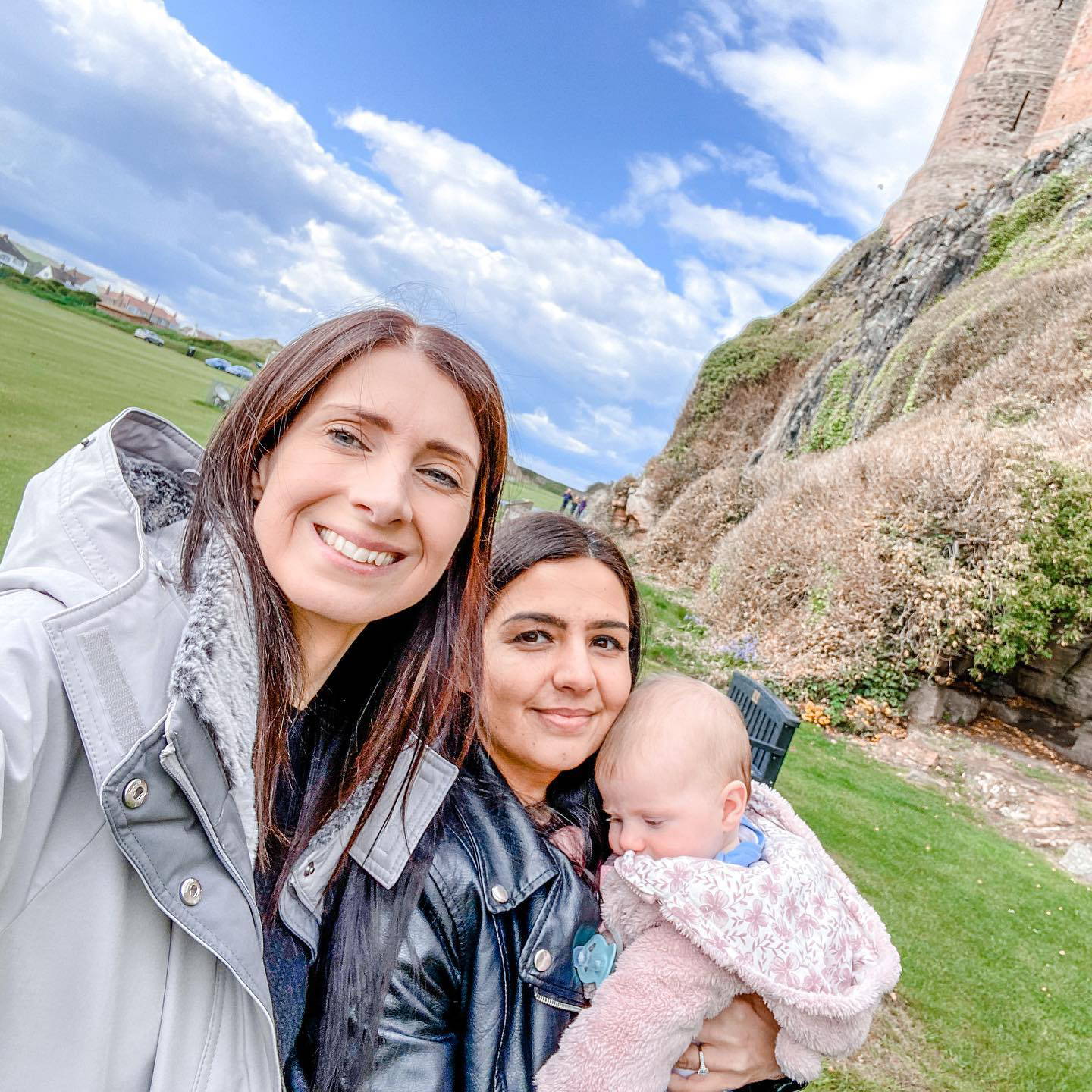
Is there anything you think parenting brands could do differently to be more inclusive? Or is there anything you’d like to add about this topic in general? Do you feel excluded, or do you find that society is becoming more inclusive as a whole?
Rachael: I would say probably just feature more same sex couples in their advertising campaigns. I don’t think you tend to see many families like ours featured unless it’s pride month. We exist outside of June too! It would be nice to see more representation.
Ashleigh: I think society is definitely becoming more inclusive than it once was however there is still quite a long way to go. I remember reading all of the parenting books when I was pregnant, and they always referred to ‘Dad’ and partner as a ‘he’.
Finally, what’s your favourite thing about being a mum?
Rachael: The cuddles! Also, her smiles and laughs are my favourite. Avery is the happiest baby. Everyone is always commenting on how happy she is.
Ashleigh: Definitely, her smile just melts my heart. We love seeing her hit all of her little milestones and watching her personality develop. We can already tell she’s going to keep us on our toes!
Rachael, Ashleigh, thank you so much for talking to us.
Remember, you can follow Rachael and Ashleigh's adventures over on Instagram. And don't forget to check out the rest of our Pride Stories. You can find a selection below...

